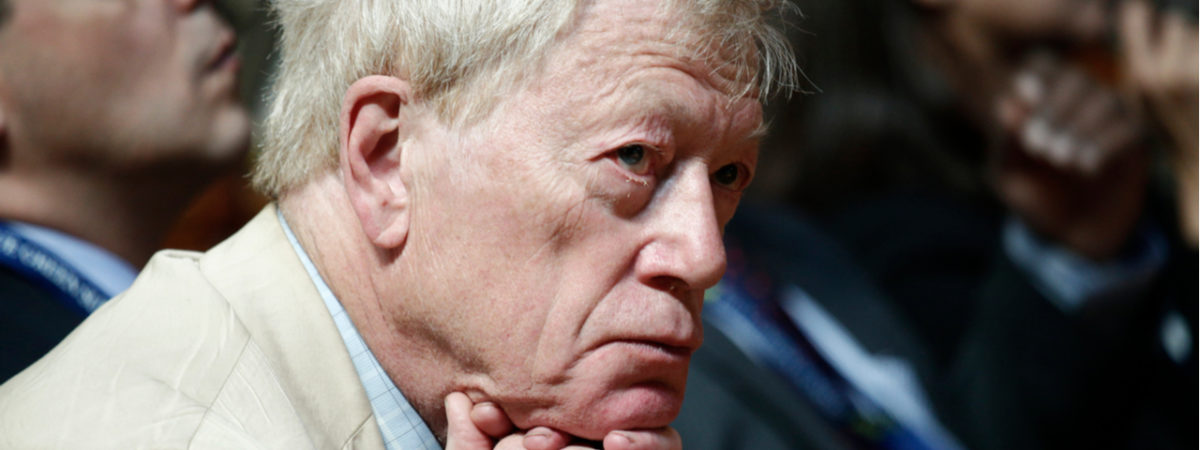A classical liberal view of the Iran crisis? Some initial thoughts
SUGGESTED



The short answer is “yes”, which may come as a surprise to many familiar with International Relations (IR) textbooks and academics, who, without any consideration of the history of ideas, present liberals as peace loving cosmopolitans, often pacifists, who see national states as dangerous, better to be replaced by transnational arrangements, or even world federations. IR liberals are said to avoid war and conflict, through the alleged pacifying effects of international free trade, the power of public opinion, or international arbitration. Thinkers commonly associated with such ideas include Immanuel Kant, Richard Cobden, and Woodrow Wilson. Modern liberal IR ideas have developed further since, especially in their support for liberal internationalist institutions.
The ideas of classical liberal thinkers such as David Hume, Adam Smith, Ludwig von Mises or Friedrich Hayek are mostly absent from the liberal debate on IR theory, despite them writing on international issues and having different views. The differences start with the classical liberal view on human nature, where man is not modelled on some unreachable ideal, but taken as he is. Rationality is not the only factor explaining human conduct, emotion should also be taken into account, or as Hume wrote: “reason is and ought to be slave of the passions”. This implies the impossibility of getting rid of human conflict and violence. It may be rational not to use or prefer not to use violence against others, but thus far humans have been unable to live as angels, as sometimes emotion takes over, while some people just live by other morals, for diverse reasons. In domestic politics this leads to a need for the police and the judiciary. It also applies to international relations, which, after all, is just another human affair.
War cannot simply be abolished, and so a crucial question for IR classical liberal theorists, is how to deal with the inevitable outbreak of conflict. One important instrument is the balance of power. This is the idea that in a world without an ultimate judge or power, the important actors will form alliances and power blocks that will roughly balance each other out. In this way international order is preserved.
Despite the increasing influence of non-state actors and regional blocs, nation states remain the main actors in global politics. For classical liberals this is a normal situation. They see the individual as a social being, with strong attachments to family and friends. Local communities are important, with the nation state (however defined) as the outer boundary for strong and lasting feelings of adherence, often in the form of patriotism. It is still possible to feel sympathy for or empathy with those further away (Adam Smith used the example of victims of an earthquake in China), but these feelings are not as strong.
However, the balance of power doesn’t necessarily provide stable situations, since alliances change, the central powers in the balancing blocks may continue to fight proxy wars, the interests of smaller powers are not always looked after etc. The Cold War may serve as a recent example. For those familiar with IR theory, these ideas about states and the balance of power may seem to reflect the Realist school of IR, except that Smith and particularly Hume wrote about the balance of power in the eighteenth century, two centuries before Hans Morgenthau, who is considered the father of Realism in IR theory.
So, with these ideas in mind, let’s return to the Iran crisis. Classical liberals will not be surprised by the repeated occurrence of violence and war in the Middle East and will understand the realities of the unstable region where Iran is an important player. Their analysis will view the regional balance of power in the context of the global balance of power. They will also take account of the history of US-Iranian relations, including the 1953 CIA-led overthrow of Mosaddegh’s democratically-elected government to gain access to Iranian oil, subsequent US support for repressive Shahs, the 1988 US Navy’s shooting down of an Iranian passenger plane after which the captain was awarded a medal, the US and Iran’s support for their proxy militias and terrorists, the bombing of Saudi oil installations (allegedly by Iran), the US assassination of General Quassem Suleimani, the Iranian bombing of the US base in Iraq, followed by the limited US response and the Iranians admission of shooting down a Boeing airplane.
US politicians and “experts” who urge further military intervention are often characterised as supporters of what Eisenhower referred to as the Military Industrial Complex (MIC). However, there are critics of the MIC who support military intervention to bring freedom to the Iranian people from what they see as an oppressive government. Christopher Prebble of the libertarian CATO Institute warns against this, reminding us that recent US military campaigns have instead led to instability, terrorism and a refugee crisis. He believes that interventions should be considered on the basis of: US national security; clear national consensus; cost-benefit analysis; clear obtainable objectives; and force as a last resort. This is the kind of ‘foreign intervention check list’ that other countries should also take into account.
The Iranian example shows that classical liberals will take account of the numerous power differences and interests and will be sceptical about the chances for fundamental change. Perhaps this may not seem surprising to those used to a power-based analysis. However, it is rather different from how liberalism is often portrayed by IR academics.



